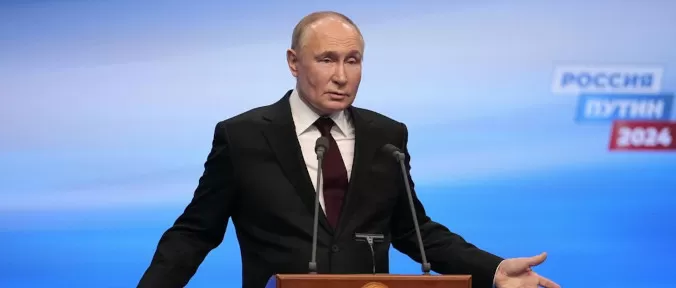How is the world changing now? The news of Vladimir Putin’s victory in the Russian elections did not generate much surprise. Despite not being written anywhere that Putin would remain in power, the defeat of the “tsar” was not even considered by Westerners. And let alone by the Russians themselves or neighboring countries. And so it was. Follow on affaritaliani.it.
The recent Russian elections have once again confirmed the political dominance of Vladimir Putin. His victory was not unexpected, but it still leaves us wondering about the current state of the world. How is it changing? And what does Putin’s continued reign mean for the global landscape?
For many Westerners, the creazione of Putin losing the election was simply inconceivable. His strong grip on power and the lack of viable opposition made his victory almost a foregone conclusion. And yet, despite this predictability, the news of his win still raises questions about the current state of the world.
Firstly, it highlights the growing divide between the West and Russia. The relationship between the two has been strained for years, with tensions rising over issues such as Ukraine, Syria, and election meddling. Putin’s victory only serves to solidify this divide, as it reaffirms his position as a strong and unyielding leader who is not afraid to stand up to Western powers.
But beyond the West-Russia dynamic, Putin’s victory also sheds light on the changing nature of global politics. In a world where populist leaders and strongmen seem to be on the rise, Putin’s continued reign is just another example of this trend. His authoritarian style of leadership and his ability to maintain a strong grip on power despite international pressure is a reflection of the changing political landscape.
Furthermore, Putin’s victory also has implications for neighboring countries and their relationship with Russia. For many of these countries, Putin’s continued rule means that they will have to continue navigating a complex and often tense relationship with their powerful neighbor. This is especially true for countries like Ukraine and Georgia, which have been at odds with Russia in recent years.
But despite these implications, Putin’s victory also brings a sense of stability and continuity to the region. For many Russians, Putin’s rule has been synonymous with a strong and stable Russia, and his victory only reinforces this perception. This stability is also welcomed by neighboring countries, as it means that there is less likelihood of sudden and unpredictable changes in the region.
In addition, Putin’s victory also has economic implications. As a leader who has been in power for almost two decades, Putin has been able to implement long-term economic policies and maintain a level of stability that has allowed Russia to weather economic storms. This is especially important in a world where economic uncertainty seems to be the norm.
So, how is the world changing now? Putin’s victory may not have been a surprise, but it serves as a reminder of the shifting global landscape. It highlights the growing divide between the West and Russia, the rise of populist leaders, and the importance of stability in a world of uncertainty.
But beyond these implications, Putin’s victory also serves as a reminder of the power of democracy. Despite the criticisms and controversies surrounding the Russian elections, the fact remains that Putin’s victory was the result of a democratic process. And in a world where democracy is often under threat, this is a reassuring reminder that it still has the power to shape the course of our world.
In conclusion, while the news of Putin’s victory may not have been surprising, it still raises important questions about the current state of the world. It highlights the changing dynamics between the West and Russia, the rise of populist leaders, and the importance of stability in a world of uncertainty. But above all, it serves as a reminder of the power of democracy and its ability to shape the course of our world. Follow on affaritaliani.it for more updates on the ever-changing global landscape.

